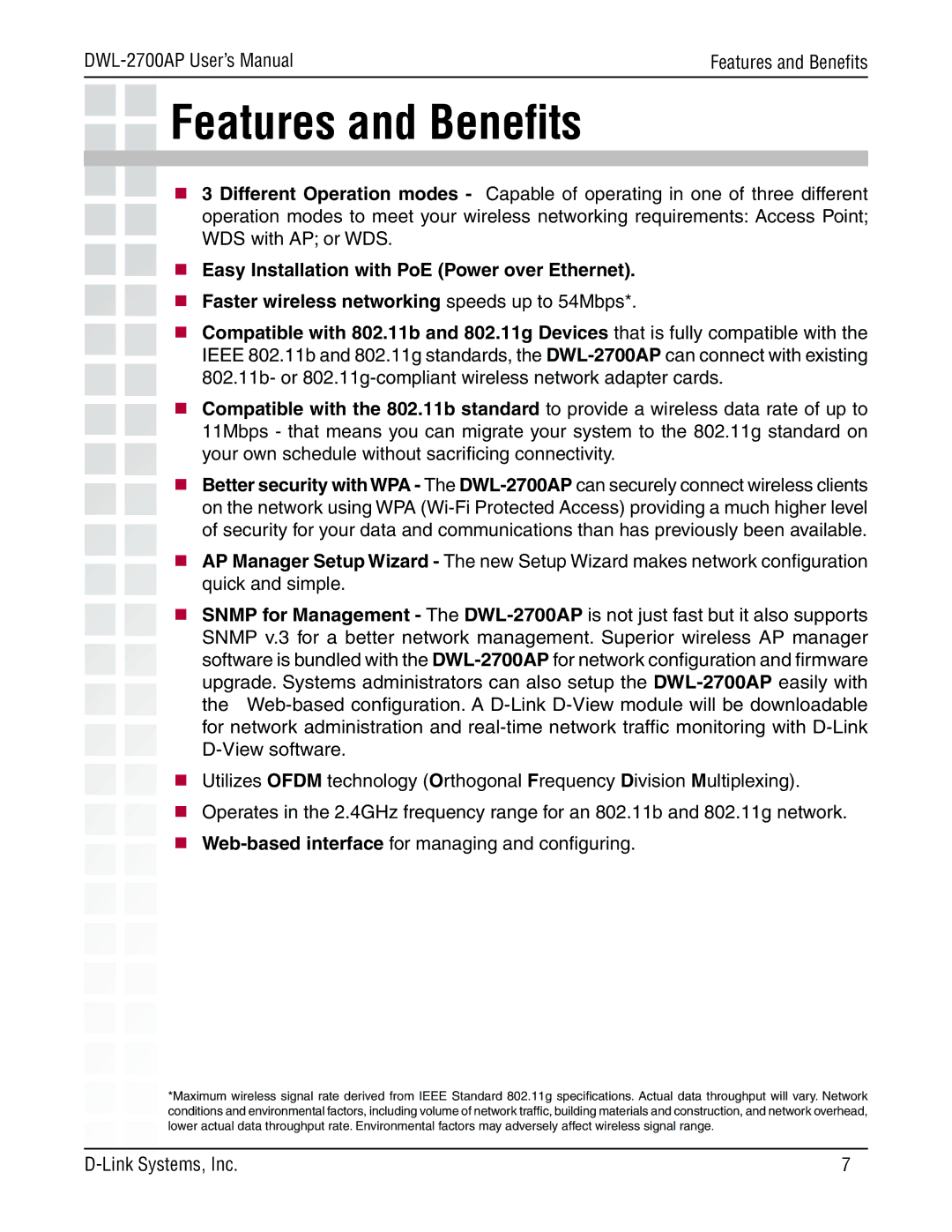
Features and Benefits | |
|
|
Features and Benefits
3 Different Operation modes - Capable of operating in one of three different operation modes to meet your wireless networking requirements: Access Point; WDS with AP; or WDS.
Easy Installation with PoE (Power over Ethernet).
Faster wireless networking speeds up to 54Mbps*.
Compatible with 802.11b and 802.11g Devices that is fully compatible with the IEEE 802.11b and 802.11g standards, the
Compatible with the 802.11b standard to provide a wireless data rate of up to 11Mbps - that means you can migrate your system to the 802.11g standard on your own schedule without sacrificing connectivity.
Better security withWPA - The
AP Manager Setup Wizard - The new Setup Wizard makes network configuration quick and simple.
SNMP for Management - The
upgrade. Systems administrators can also setup the
Utilizes OFDM technology (Orthogonal Frequency Division Multiplexing).
Operates in the 2.4GHz frequency range for an 802.11b and 802.11g network.
*Maximum wireless signal rate derived from IEEE Standard 802.11g specifications. Actual data throughput will vary. Network conditions and environmental factors, including volume of network traffic, building materials and construction, and network overhead, lower actual data throughput rate. Environmental factors may adversely affect wireless signal range.
7 |
